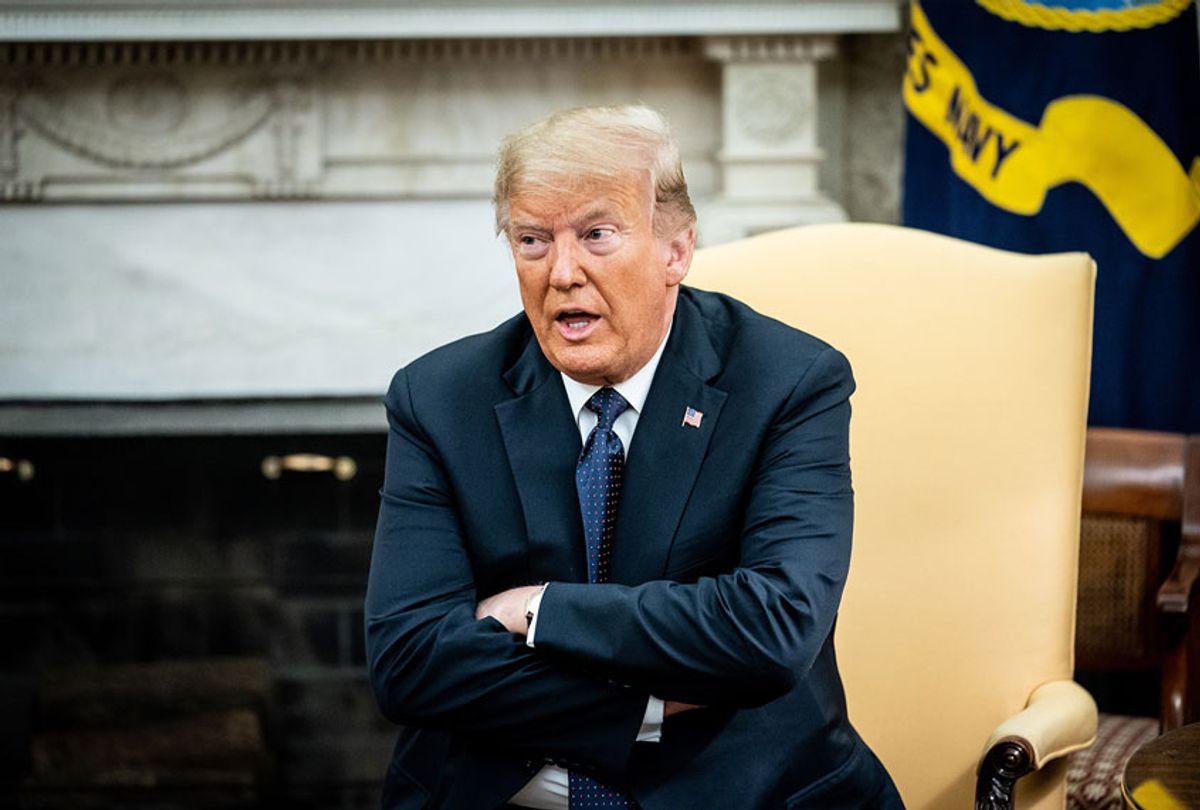With the United States being rocked by the coronavirus pandemic, double-digit unemployment and huge protests in response to the horrific death of George Floyd in Minneapolis on May 25, President Donald Trump finds himself trailing former Vice President Joe Biden — the presumptive 2020 Democratic presidential nominee — in poll after poll. That isn't to say that a Biden victory in November is inevitable or that Trump's performance in polls won't improve, but according to journalist Bill Scher, history shows that Trump's chances of turning things around are not good.
In a Real Clear Politics article, Scher (a contributing editor at Politico) explains, "It's only late June. A lot can happen in four months, right? Let me put it this way: in the history of presidential election polling, no elected incumbent president has ever come back from as big a hole as Trump is now in."
Scher delves into U.S. history, noting some examples of presidential candidates who were looking bad in polls but were victorious in the end — for example, President Harry Truman in 1948. Three words that live in infamy in American journalism are "Dewey Defeats Truman," a banner headline in the November 3, 1948 edition of the Chicago Daily Tribune (now the Chicago Tribune). But it was Truman, not GOP nominee, Thomas Dewey, who ended up winning 1948's presidential election.
"Similar to Trump today, Harry Truman was down 11 percentage points in June and July 1948, according to Gallup," Scher explains. "But Truman was to many Americans an 'accidental president,' having attained the Oval Office not at the ballot box, but by line of succession after Franklin D. Roosevelt's death. Truman required a furious 31,000-mile whistle-stop train tour, putting him in front of 3 million voters, to repair his image and turn his campaign around."
Another presidential candidate who turned things around was Republican George H.W. Bush in 1988.
"The elder Bush was losing badly to Michael Dukakis in the late spring and early summer of 1988, sinking to a 17-point deficit in Gallup polling after the Democratic National Convention," Scher recalls. "But most Americans did not know the governor of Massachusetts very well. Bush was able to define him by launching a ferocious series of negative ads. Dukakis inadvertently abetted Bush's attacks by errantly believing the best response was no response. Bush grabbed an eight-point lead by September and never looked back."
Scher notes that when GOP strategist Karl Rove appeared on Fox News on Friday, June 26, he cited Truman and Bush 41 as examples of how presidential candidates can overcome bad poll numbers. But Scher argues that "neither campaign offers a model Trump can follow. Trump is not an 'accidental' president like Truman — someone the public just needs to get to know better. He has been in the public eye so much our collective retina is seared. A Truman-style whistle-stop tour won't show us anything that we haven't already seen."
Scher adds, "The Trump campaign has been trying to replicate Bush's brutal 1988 campaign, albeit with less subtlety. Campaign manager Brad Parscale bragged in May that he had built a 'death star' that would train its fire on Joe Biden. But as a former vice president and six-term senator, Biden is a far more well defined figure than Dukakis. It's no surprise, therefore, that the initial blitz of attacks has fallen flat."
Scher writes that although "no elected incumbent has ever come back from 10 points down," that "doesn't mean Trump can't become the first." But he stresses that if Trump does overcome his current poll numbers and is reelected in November, it will be historic.
"We can't know the future, but we can know the present," Scher asserts. "At present, a majority of the public has soured on the Trump presidency and is ready to end it. As history shows, that is not a good place to be. For Trump to win, he will have to — some way, somehow — make history."


Shares